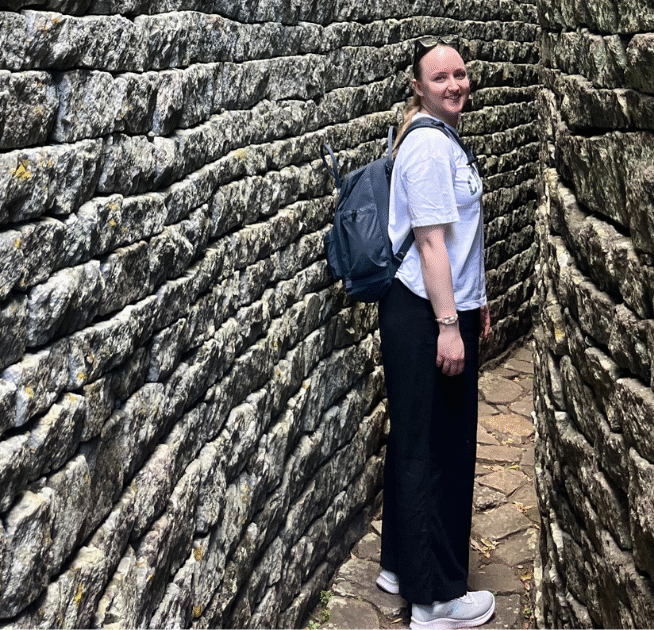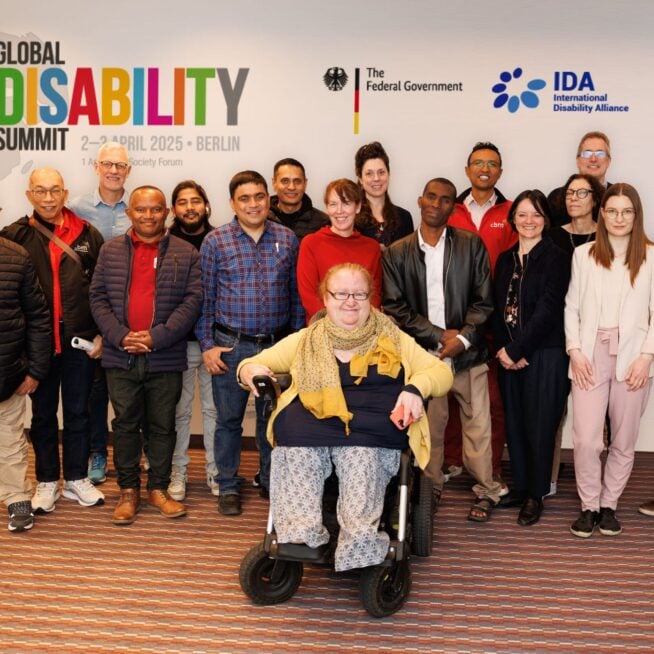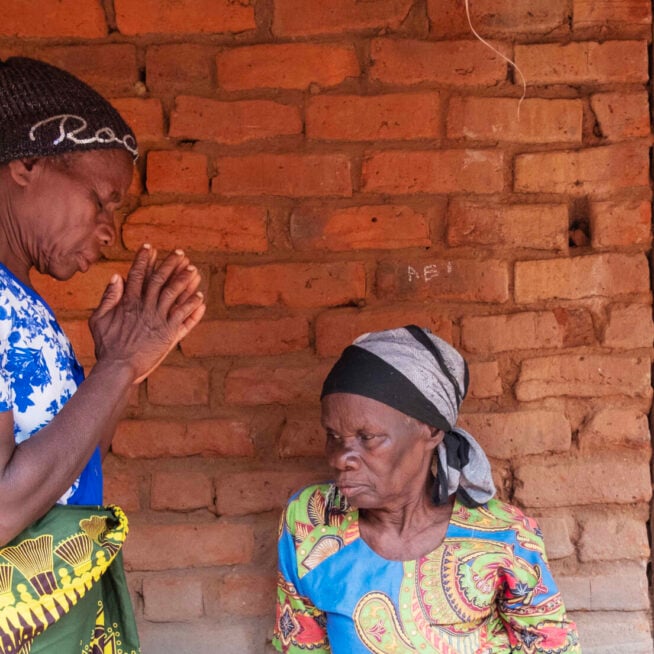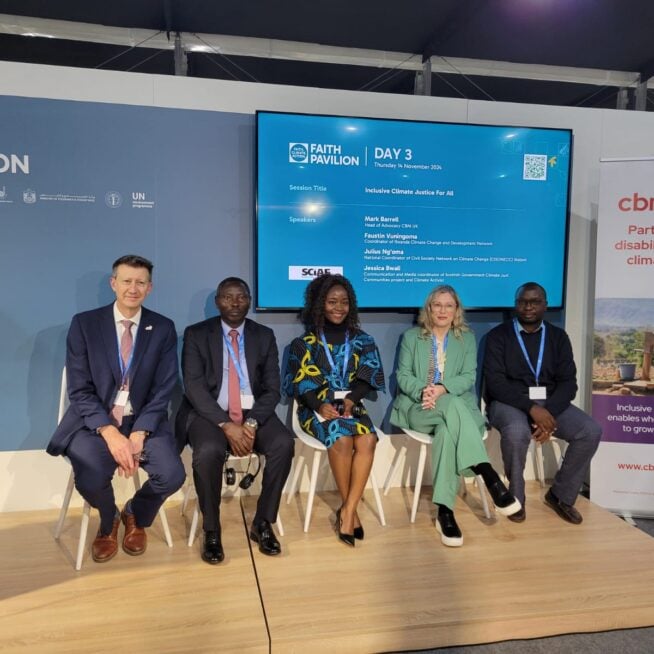Want to transform lives with us? Stay in touch and hear about our news, activities and appeals by email!
Will the UK Government lead again on the extreme poverty agenda?
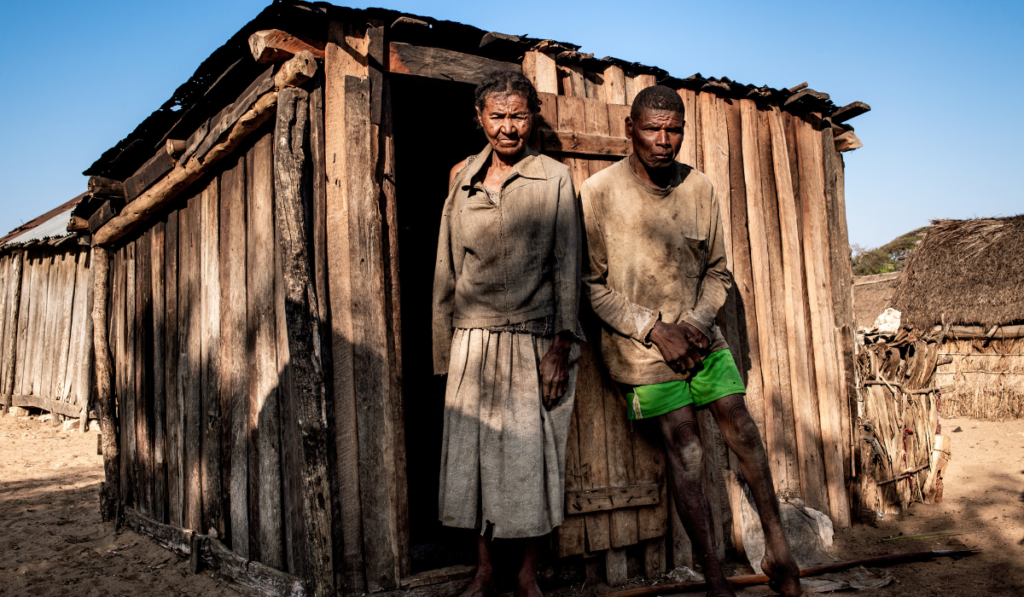
Mark Barrell, Head of Advocacy and Influencing at CBM UK reflects on the International Development Committee report, “Extreme poverty and the Sustainable Development Goals”.
“Fighting to break the cycle of poverty and disability” is CBM UK’s mission statement. This drives us because poverty reduces choice and opportunity. It lessens access to education, employment and basic human rights like water, food and shelter. People with disabilities are overrepresented amongst the extremely poor, with disability contributing to and deepening poverty on an individual, family and community level.
Is the fight to eliminate extreme poverty being won?
Extreme poverty is currently measured as a person living on less than $2.15 per day (or around £1.75). Over the last three decades, this number has reduced globally from well over 1.9 billion to around 660 million. Despite the limitations of measuring poverty based purely on monetary terms without including social, political and other factors, this reduction suggests real progress. However, recent figures, including those from the World Bank, now suggest that, for the first time, extreme poverty is increasing. The three ‘C’ challenges of “Covid-19, Climate and Conflict” are threatening to push back the progress made, with all three disproportionately affecting people with disabilities.
In 2015 all United Nations Member States adopted an agenda of 17 Sustainable Development Goals the first of which is to end poverty in all its forms everywhere by 2030. At the 2023 halfway point, these same three ‘C’ challenges are identified by the UN as having derailed that task significantly.
Where is the UK Government in this fight?
The International Development Committee (IDC) is the UK Parliamentary Committee responsible for scrutiny of the Foreign Commonwealth and Development Office (FCDO), and how this arm of the UK Government uses, administers and outworks its policies on international development. The IDC’s most recent report, Extreme poverty and the Sustainable Development Goals, raises a number of significant challenges in UK government policy direction, and makes some important recommendations, including around the disproportionate negative impact on people living with disabilities. CBM UK is seeking to amplify the concerns and recommendations that are raised, especially those related to disability.
The report, published in December 2022, acknowledges the sustained, significant, historic contribution the UK Government has made to reducing extreme poverty globally. However, it also observes that this focus and funding has notably diminished, concluding that recent aid cuts have “damaged the UK’s reputation as a development leader”.
What does the report highlight about disability?
The IDC report drew substantially on evidence given to it by the Bond Disability and Development Group (DDG), which I co-Chair. The DDG submitted a briefing paper, and some of our members gave verbal testimony to the IDC. This included commenting on the devastating impact of cuts in UK Government overseas funding on partner projects, including one in particular supported in part by CBM UK in Bangladesh.
The IDC report confirmed that women and girls, people with disabilities, and other marginalised groups were hit the hardest and damningly said: “The cuts were made with little reference to need or poverty impact, and they disproportionately impacted the most vulnerable groups.”
What can be done? Here are specific calls on the UK Government, based on IDC recommendations to take action against extreme poverty and its impact on people with disabilities.
1. UK Government needs to lead again on extreme poverty
The IDC report calls for the UK Government to return “…to the position of leadership on the extreme poverty agenda…” as an easy and effective way to “reclaim, and build from, decades of hard-won reputation, expertise and impact internationally.” This is something CBM UK wholeheartedly endorses. We agree that without a core aim of eradicating extreme poverty, development benefits will always be diluted. The IDC recognised too that “trade and investment are important for large-scale poverty reduction, but trickle-down development is, at best, unreliable.” CBM UK would go further. The marginalised, which includes people with disabilities, rarely if ever benefit from a trickle down approach, and without targeted funding the possibility of being left behind increases substantially.
2. UK Government funding needs to be targeted to break the cycle of poverty and disability
There is a real need for the UK Government to prioritise alleviating extreme poverty, especially for the most marginalised, when deciding how funding is allocated. Rather than simply hoping that mainstream funding and trickle down will eventually reach those who really need it, funding must be targeted. There are core areas where disability must be included both in mainstream support and in specific ways. The IDC recommended that the UK Government must “develop a coherent cross-departmental Global Health Strategy”, and acknowledged that climate change is a “threat multiplier” which amplifies risk and deprivation for the most vulnerable. In both areas, CBM UK is at the heart of the fight for full recognition of people with disabilities. Education too is key, with the IDC concluding that focus must be on “impactful programmes for poverty reduction, particularly early years and primary education, and those that are disability inclusive, recognising the additional barriers children with disabilities face.”
3. UK Government needs to act on its commitment to disability in development
CBM UK welcomed the FCDO’s new Disability Inclusion and Rights Strategy in February 2022. However, along with the DDG we were seriously concerned at the time of the aid cuts that progress made for disability inclusion was under threat.
The DDG and CBM UK wholeheartedly support the recommendation within the IDC report that, “The disability inclusion and rights strategy 2022–2030 must feed into all the Department’s (FCDO) development work, or it risks becoming an empty promise” and to link its strategies to “coherent, published delivery plans, which should include clear targets, timelines and financial allocations”. These would be key ways for the UK Government to champion disability inclusion going forward.
Poverty is political, and the power to enable change is held by many stakeholders, including our own Government – and it will be interesting to see their response to this IDC report due later this month. As we strive for justice alongside our partners and the disability movement, CBM UK will seek to influence and hold accountable those who have the ability to make the difference for the most marginalised. We believe that our vision of an inclusive world where all people with disabilities enjoy their human rights and achieve their full potential, is not only realisable but essential.
CBM UK networks with various organisations to increase the influencing potential on the UK Government. This is most notably through BOND, which connects 400 organisations working in international development and humanitarian action. Mark Barrell, who is Head of Advocacy and Influencing at CBM UK is a Co-Chair of the Bond Disability and Development Group that has over 300 members representing over 45 organisations.
Top image: Mosa, 45, and his mother outside the wooden shelter where they now live in southern Madagascar. They had to sell their house to buy food due to the climate-induced drought. Mosa has a physical and intellectual disability. Copyright: CBM / Viviane Rakotoarivony

